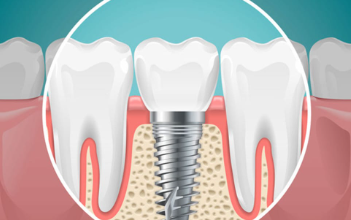What to Do When Your Ears Feel Fine But Something Still Feels “Off”

You don’t feel pain. There’s no ringing. Conversations aren’t difficult. And yet… something just feels off. Maybe it’s a low-level pressure you can’t shake, or a sense that your hearing isn’t as sharp as it once was, even though nothing’s obviously wrong.
It’s situations like these where early action can make a big difference. Subtle shifts in hearing can be hard to self-diagnose, but they may still impact how you process sound, focus in noisy settings, or communicate effectively. If you’re not quite sure what’s going on, this is exactly when it makes sense to consider hearing tests Marrickville locals rely on for clarity and peace of mind.
So what should you be looking out for — and what should you do next?
Subtle Signs That Deserve Attention
Hearing loss isn’t always dramatic or immediate. Many people begin noticing small changes long before they experience anything that would be considered a “problem.” You might:
- Struggle to follow conversations in busy cafés
- Find background noise increasingly distracting
- Feel unusually tired after group discussions
- Have difficulty picking up softer sounds, like whispers or rustling paper
These experiences can all point to early or mild hearing issues, even if your ears feel physically fine.
See also: Canna Rhizotonic: A Key Component in Plant Growth and Health
Why “Normal” Can Still Be Misleading
You may pass casual conversations or basic sound checks with flying colours, but that doesn’t always mean your hearing is optimal. People often adjust subconsciously — turning their head a certain way, reading lips more than they realise, or avoiding noisy settings altogether.
Over time, these coping mechanisms can mask the slow progression of hearing decline. That’s why objective hearing assessments are so valuable. They provide a clear picture of how your ears are actually functioning across various frequencies and environments — not just how they “feel” day to day.
The Link Between Hearing and Mental Load
One overlooked effect of subtle hearing decline is how much harder your brain has to work to fill in the blanks. You might find that:
- You miss details unless someone repeats them
- You rely more on context clues than actual words
- You’re mentally drained after social events
This extra effort can leave you feeling foggy or fatigued, especially in group settings. The good news? Identifying the cause early gives you more time and more options to adapt without stress.
What Happens During a Hearing Test?
If you’ve never had your hearing tested, the process is simple and non-invasive. It usually involves:
- Answering a few lifestyle and medical history questions
- Wearing headphones in a soundproof space
- Listening to tones at various frequencies and volumes
- Responding to spoken words in quiet and noisy settings
The results show how well your ears are picking up different sounds, and whether there’s any imbalance between ears — something you might not notice on your own.
When to Get Checked (Even Without Pain)
Some people wait until their hearing is clearly impaired before they seek help. But just like with eye tests or dental check-ups, regular hearing assessments are a smart preventive measure.
Consider getting tested if:
- You’ve noticed recent changes in how you experience sound
- You work or spend time in noisy environments
- You’re over 40 and haven’t had a hearing check in years
- Friends or family have mentioned you seem distracted or miss parts of conversation
Early detection doesn’t just protect your hearing — it can also safeguard your social life, career communication, and long-term cognitive health.
Everyday Changes That Can Help
Even if a test shows no major issues, there are easy things you can do to protect your ears and stay tuned in:
- Lower headphone volume and limit long listening sessions
- Use ear protection in loud settings (e.g., concerts, construction, traffic)
- Take sound breaks during noisy days
- Monitor ear health during illnesses or allergies
Your ears don’t need to hurt to deserve care. Small actions now can mean better hearing later.
Don’t Wait for a Wake-Up Call
If you’ve ever had that nagging feeling that something’s just a bit off — trust it. You don’t need to wait until things get worse to seek answers. A simple, quick hearing check can rule out problems, offer peace of mind, or give you a head start on protecting your hearing for years to come.
Your ears may feel fine. But taking the time to listen closely — really listen — might be the smartest thing you do for your health this year.





